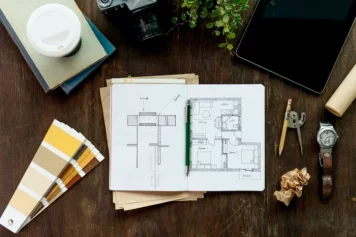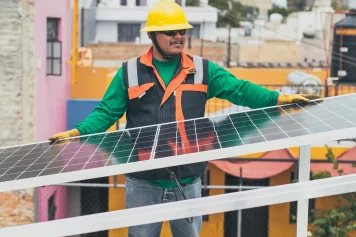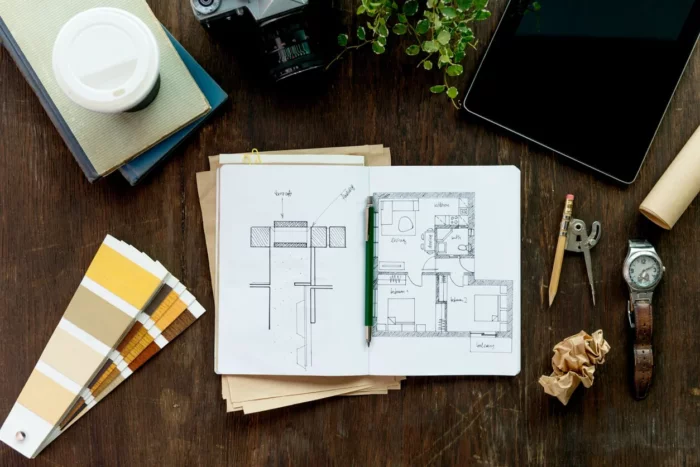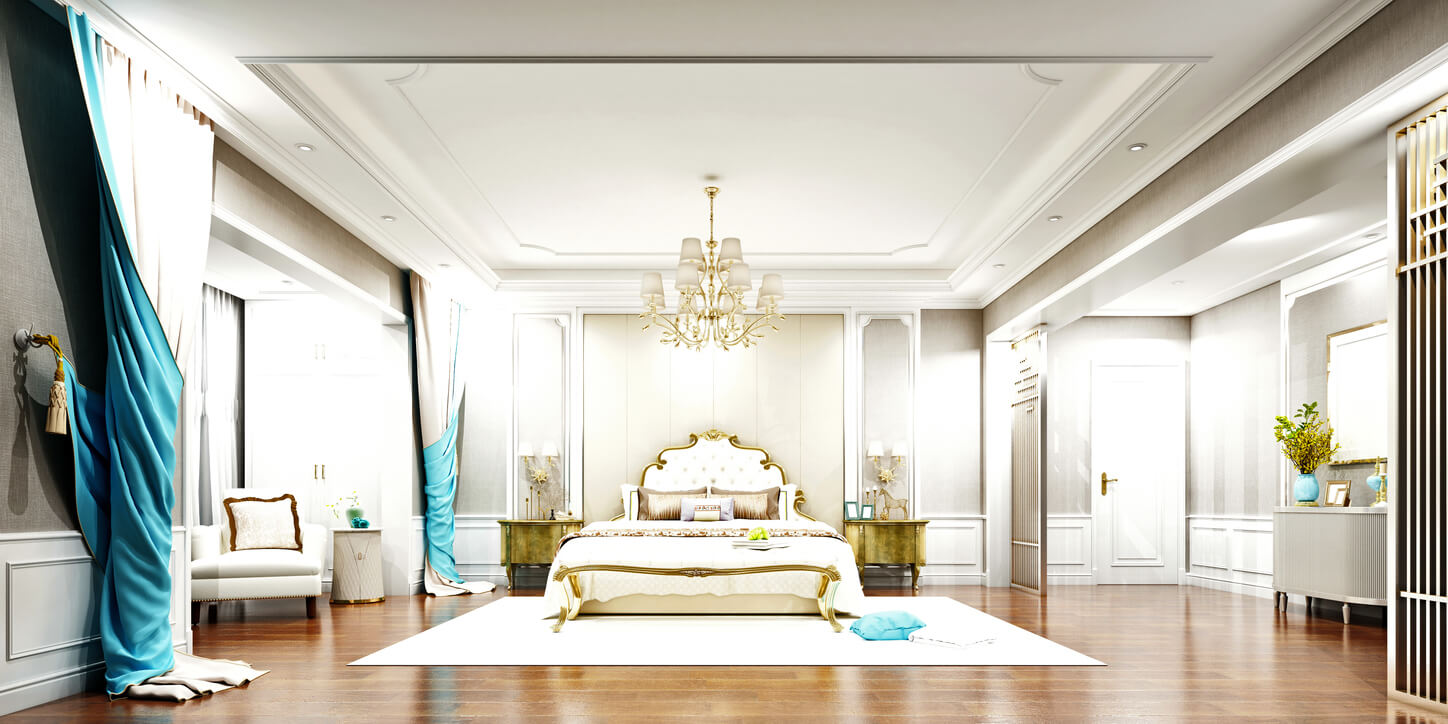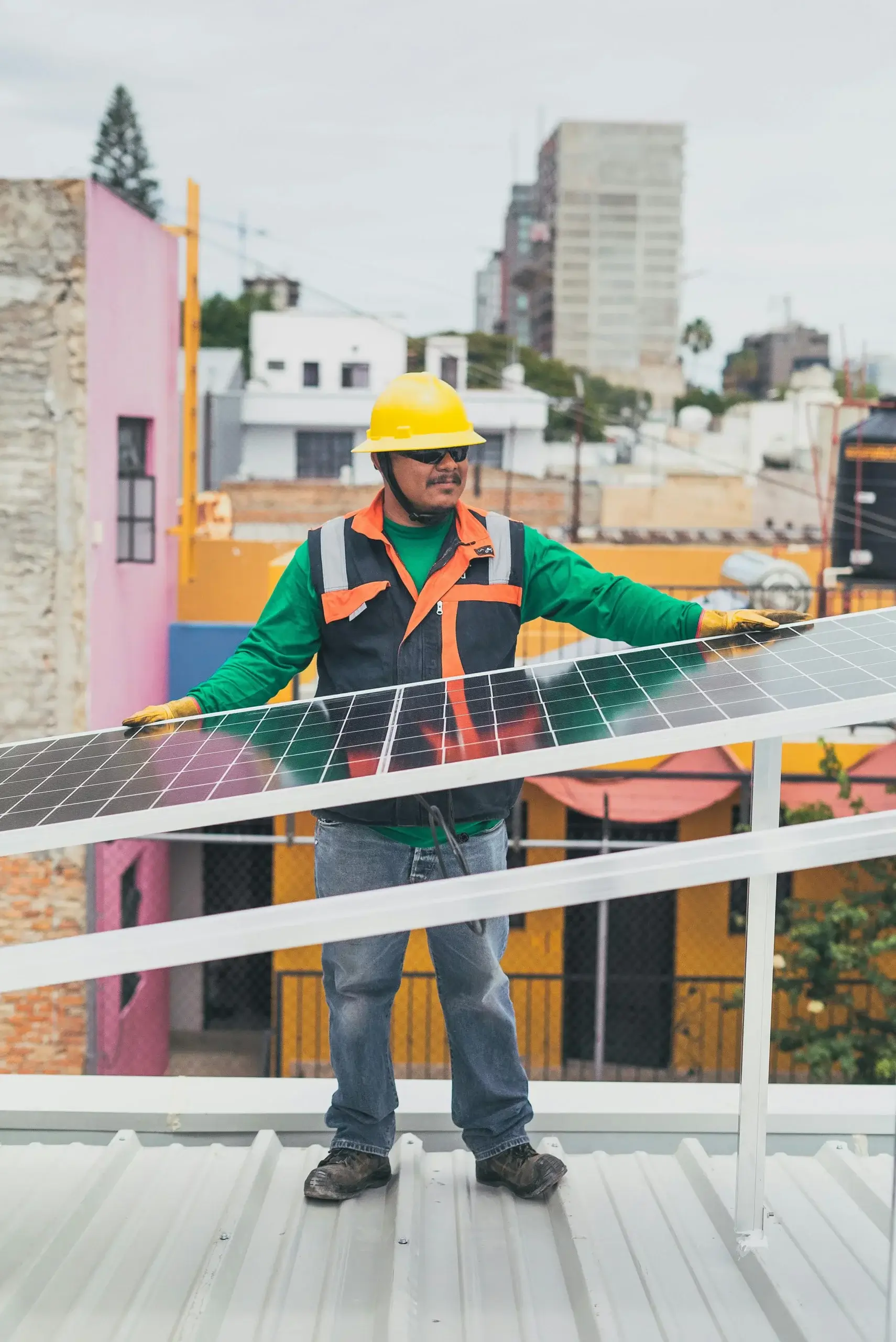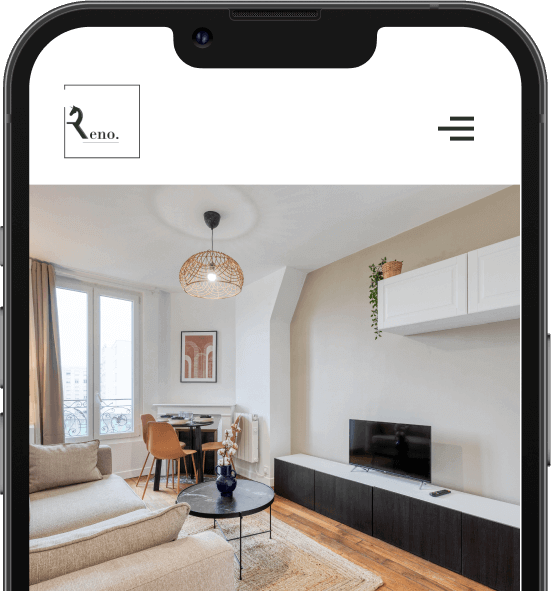The price of renovating your home yourself varies depending on the type of project. Looking to give your home a facelift or improve your energy efficiency? Renovating your home is an excellent solution. But before you begin work, it’s essential to estimate the necessary budget .
How much does a renovation cost? What are the most cost-effective projects ? These are all questions worth asking. In this article, we’ll guide you step by step to help you estimate the cost of your project and save money .
We’ll cover the different types of renovations , the materials to choose, the essential tools , and the financial assistance you’re eligible for. Ready to become your own site manager?
Average cost of self-build renovation work
The cost of a home renovation varies depending on several key factors. The average price for a 100 m² home renovation is between €20,000 and €50,000 for self-build projects. The savings can reach 40% of the initial budget.
Price comparison: professional renovation vs. DIY renovation
Home renovations carried out by professionals are significantly more expensive. A professional charges between 800 and 1,200 euros per m². For self-renovation, this cost drops to 400-600 euros per m².
Labor often accounts for 50% of the total construction budget. The price of a home renovation therefore becomes very attractive when it’s done by self-builders. The savings are mainly made on finishing work.
Savings achievable by type of self-renovation work
Energy renovations can lead to considerable savings when building your own home. Attic insulation costs €3,000 with a professional. DIY projects cost €1,200.
Your home renovation budget can be significantly reduced for certain simple projects. Installing parquet flooring costs 80 euros/m² with a professional. For self-renovation, expect to pay 30 euros/m².
Factors influencing the budget for self-renovation
The initial condition of the property has a significant impact on the cost of home renovations . A house that is in very poor condition will require more investment. The materials chosen also affect costs.
The area to be renovated determines the scope of the renovation project . The larger the area, the greater the savings. Accessibility of the site also influences costs.
Technical constraints affect the renovation project . The presence of asbestos increases costs. Electrical standards sometimes require the intervention of a professional.
The quality of materials impacts the cost of renovation . Low-cost options can double your budget in the long run. A good balance of quality and price remains essential.
The time available influences the renovation budget estimate . Staggered work allows for cost optimization. Purchases can be spread out as needed.

Comparison table: average price of renovations with and without a professional
Type of work | Price with craftsman | Self-renovation prices | Average savings | Difficulty level |
Painting (100 m²) | 2000-3000€ | 400-600 € | 75-80 % | Easy |
Laying parquet flooring | 50-70 €/m² | 20-30 €/m² | 50-60 % | AVERAGE |
Attic insulation | 40-60 €/m² | 15-25 €/m² | 60-70 % | AVERAGE |
Bathroom renovation | 5000-8000€ | 2000-3500 € | 55-65 % | Difficult |
Full kitchen | 8000-15000€ | 3000-6000 € | 60 % | Difficult |
Price guide by type of renovating your home yourself
The cost of home renovations varies depending on the type of work undertaken. An accurate estimate allows for better project planning. Each type of project requires a specific budget.
Cost of structural work in self-construction
Structural home renovations often represent the largest investment. These projects require special attention when carrying out them.
Roof and frame renovation prices
When it comes to home renovations, the cost of a self-built roof starts at around €50/m². Material costs account for the majority of the budget. An average roof requires between €2,000 and €4,000 in materials.
Budget for wall and attic insulation
Thermal insulation for walls costs between €25 and €40 per square meter using DIY. Attics require an investment of €20 to €35 per square meter. The choice of materials greatly influences the final cost.
Cost of floor and foundation repairs
The home renovation budget for floors varies depending on the chosen surface. A concrete slab costs around €30/m² in materials. Foundation work requires a minimum investment of €1,500.
Interior renovation budget for self-rehabilitation
DIY home interior renovations can save you a lot of money. The choice of materials directly impacts the final budget .
Kitchen and bathroom renovation prices
A complete bathroom renovation requires between €2,500 and €4,000 in materials. A kitchen requires a similar budget excluding appliances. Finishing touches account for 30% of the total cost.
Cost of painting and wall coverings
Painting renovations cost around € 15/m² in materials. Wall coverings range from €20 to €40 per square meter. Surface preparation remains essential.
Budget for laying parquet and tiles
The cost of renovating a house with laminate flooring starts at €25/m². Tiling requires a budget of between €30 and €50 per square meter. These estimates include the necessary accessories.
Do-it-yourself energy renovation rates
Energy renovations allow for substantial long-term savings. The initial investment pays for itself within a few years.
Heating and air conditioning installation prices
A self-installed heating system costs between €3,000 and €5,000. Reversible air conditioning requires a similar budget. Professional intervention is still required for certain connections.
Cost of replacing windows and doors
Energy savings begin with good joinery. A double-glazed window costs around €300 for the material alone. Insulated doors require a budget of €500 to €800.
Overall thermal insulation budget
A complete insulation renovation project requires a significant investment. The walls, floors, and ceilings require approximately €8,000 in materials. The return on investment occurs after 5 to 7 years.

Materials and equipment needed for self-renovation
The success of a renovation project depends largely on your equipment. Good tools allow for precise execution of the work. The quality of the equipment directly influences the final result of your project.
List of essential tools and their cost
Home renovations require a comprehensive range of basic equipment. A drill/driver costs between 150 and 300 euros, depending on the model. A set of hand tools costs around 200 euros. A circular saw represents an investment of 100 to 250 euros.
Renovation work also requires precise measuring equipment. A professional laser level costs between €200 and €500. A laser tape measure costs between €50 and €150. These tools guarantee accurate measurements for your project.
The tools you need for home renovations vary depending on your specific needs. Power tools are the largest initial investment. A budget of €1,000 to €1,500 covers the essential equipment to get started.
Specialized equipment rental prices
Renting is ideal for large home renovation projects . A cement mixer costs around 50 euros per day. Scaffolding costs 80 euros per day. These rates often include specific insurance.
Some energy renovation projects require very specific equipment. An insulation spray machine costs 150 euros per day. A thermal imaging camera rents for 100 euros per day. These technical tools optimize your efficiency.
The cost of refurbishing rented equipment remains attractive for occasional use. Rates often decrease over time. Weekly rentals offer a 20% to 30% discount. Security deposits vary depending on the equipment.
Safety equipment to budget for
Safety is a priority for any home improvement budget . A complete set of personal protective equipment costs around 200 euros. This amount includes a helmet, goggles, gloves, and shoes.
Working at height requires specific equipment for home repairs . A safety harness costs between 100 and 200 euros. Temporary lifelines cost around 150 euros. These investments protect your safety.
Respiratory protection is crucial for renovation work . A professional dust mask costs 30 euros. Replacement cartridges cost 15 euros. This equipment protects your health during construction.
Optimizing your renovation budget when self-building
Home renovations require careful planning of expenses. Self-construction allows for substantial savings. A well-planned project can reduce costs by 40 to 60%.
Financial aid for self-renovation
Renovation work benefits from numerous government support programs. MaPrimeRénov’ specifically supports energy-efficient self-renovation projects. The amount of support varies depending on household income.
The Eco-PTZ makes it easier to finance energy renovation work . This interest-free loan covers up to €50,000 of work. The conditions for obtaining it remain simple for self-renovators.
The reduced VAT rate for home renovations applies to the price of materials. The rate is 5.5% for energy-saving work. Other renovations benefit from a 10% VAT rate.

Tips to reduce material costs
Home renovation prices are reduced thanks to group purchasing of materials. Dealers offer significant discounts on large orders. Purchasing cooperatives offer significant savings.
Recycling significantly reduces the cost of a home renovation. Secondhand materials often retain their original quality. Specialized websites are full of interesting opportunities.
Timing influences the cost of a home renovation . Off-peak periods offer attractive promotions. Winter is the perfect time to purchase materials.
The work to prioritize for a do-it-yourself home renovation
Finishing work in home renovations is well-suited to DIY projects. Painting is becoming accessible to motivated DIYers. Installing floor coverings requires little technical expertise .
Thermal insulation work offers an excellent return on investment. Self-renovating your attic is easy to do. Energy savings quickly offset the initial investment.
Renovating bathrooms requires careful planning. Bathrooms are a complex but rewarding project. Doing it yourself can save you a lot of money on labor.
Space planning improves the value of a home after renovation . Creating storage maximizes available space. Personalization increases daily comfort.
Pitfalls to avoid when managing your self-renovation budget
A home renovation project requires careful planning. Mistakes can quickly increase final costs. Proper preparation remains essential for the success of the project.
Common mistakes and associated additional costs
Underestimating the cost of a home renovation is the number one mistake. Many people overlook small expenses that add up. Buying materials piecemeal can lead to significant additional costs.
Lack of foresight on a renovation project creates costly delays. Severe weather can slow down exterior work. Poor protection of renovated areas leads to additional repairs.
Misplaced savings impact the quality of renovation work . Using low-quality materials often requires rework, which compromises the final result for years to come.
Work requiring the intervention of a professional
Certain aspects of a home renovation require specific skills. Electrical installations require professional certification. Complex plumbing requires special expertise.
Energy renovation requires advanced technical knowledge. An RGE professional guarantees access to financial assistance. Their expertise optimizes the performance of your installations.
Structural work on a renovated house remains delicate. Modifying load-bearing walls requires a preliminary study. Work on the frame requires specific skills.
Importance of Estimates and Planning
A detailed home renovation quote prevents unpleasant surprises. Each expense item must be clearly displayed. Material quantities must be precisely calculated.
Planning a home renovation budget requires a safety margin. Contingencies often represent 10% of the total budget. This financial buffer provides peace of mind.
The home renovation schedule must remain realistic. There must be sufficient time between each stage. Coordinating the various tasks requires rigor.
The organization of renovation work directly influences costs. The order of work impacts its effectiveness. Proper scheduling avoids unnecessary rework.
An improperly sized heating system results in additional costs. Its power must match actual needs. Its installation requires a prior thermal study.
The success of a bathroom renovation depends on its preparation. Waterproofing requires special attention. Connections require great precision.


